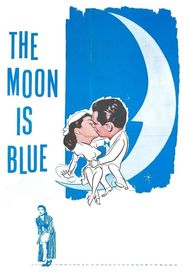Maggie McNamara, a petite and slender young woman with brown hair tied back in a ponytail, stepped off the plane in Rome, exuding an air of expectation and anticipation in her prim blue suit, reminiscent of a schoolgirl. Her bright and vivacious personality was undeniable, and she was determined to get what she wanted - a proposal from the charming "Prince Dino De Cessi", played by Louis Jourdan, in the 1954 film "Three Coins in the Fountain". At the time, Maggie was in her mid-20s, at the peak of her career, having made her second film.
Born to Irish-American parents, Maggie was one of four children, and her early life was marked by a desire to pursue a modeling career. She attended Textile High School in New York, preparing herself for a life in front of the camera. Her pert and petite features bore a striking resemblance to those of the young Debbie Reynolds, a popular look in the late 1940s. Maggie's picture appeared twice on the cover of Life Magazine, and she was hailed as a rising star, with many predicting a bright future in Hollywood.
Maggie began taking acting lessons with a dramatic coach, and at the age of 23, she was discovered by the renowned director Otto Preminger. He signed her to play the role of a proper young lady in the Chicago production of a play, and she went on to star in the national company of "The Moon Is Blue" for 18 months. Her performance earned her critical acclaim, with Brooks Atkinson, drama critic for the New York Times, praising her as "remarkably pretty" and possessing a "gift for acting".
Maggie's breakthrough role came in 1951, when she made her Broadway debut in "The King of Friday's Men". Her performance impressed audiences and critics alike, solidifying her position as a rising star. She was soon offered the female lead in Otto Preminger's film version of "The Moon Is Blue", alongside William Holden and David Niven. The film's release sparked controversy, earning a "C" rating from the Catholic Legion of Decency, but it also cemented Maggie's status as a talented young actress.
Maggie's early life and career were marked by a sense of determination and drive, as she worked tirelessly to establish herself in the competitive world of show business. Despite her success, she continued to face challenges, including the criticism and controversy surrounding her work. Maggie's life was tragically cut short in 1978, at the age of 48, leaving behind a legacy as a talented and versatile actress. Her obituary appeared in the New York Times four weeks after her death, noting her passing and the projects she had been working on at the time, including a film script and a play.






















